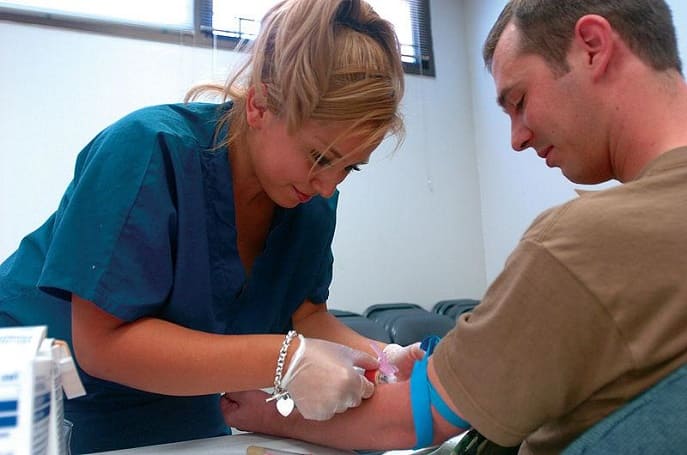As reported by the US Department of Labor, medical assisting is believed to become one of the fastest growing occupations through 2018, making this the right time for aspiring healthcare professionals to avail the necessary training. A survey by the Healthcare Intelligence Network projected medical assistant as one of the top five professionals vital to the Patient-Centered Medical Home team.
A multi-faceted personality is what makes a good medical assistant. The profession demands a strong foothold in various departments ranging from working in a physician’s office to performing administrative, technical and medical duties.
With minimal tuition fee and lower study hour requirements, the said profession is a viable option for health care aspirants.
A medical assistant is primarily responsible for supporting the physician and ensuring smooth operations of the medical facilities.
Learning to Become a Medical Assistant
The Medical Assistant training program imparts the following theoretical and practical knowledge:
- Recording vital signs and performing diagnostic tests
- Administering injections and medication
- Preparing operation rooms with required equipments and instruments for surgical procedures
- Sterilizing medical instruments
- Assisting physicians while carrying out routine check-up and physical examination
- Coordinating with pharmacies, blood banks, and other stakeholders
- Preparing patients for X-rays, changing dressings, and removing sutures
- Taking electrocardiograms
- Maintaining records
- Clinical assisting and office work
Must-Have Qualities in a Medical Assistant
Eye for Detail:
An aspiring medical assistant must be detail-oriented as physicians and insurance companies heavily depend on accurate data. This quality becomes necessary when a medical assistant records vital signs and other health related information about the patients.
Analytical Skills:
The ability to interpret medical charts and diagnosis results is a must for a medical assistant. In addition to this, a medical assistant also needs to be vigilant while handling patients’ medical history and billing records.
Technical Soundness:
Familiarity with basic medical instruments and devices is important to be able to perform medical tests, diagnosis, and drug administration following the physician’s instructions.
Interpersonal Skills:
A medical assistant operates in close contact with the patients. Hence, the ability to make the patient feel comfortable and safe is prodigiously important. A professional attitude towards all other stakeholders must be maintained as they represent the credibility of the health institution they work for. Right from receiving the patients to their treatment and discharge, the medical assistant keeps the operations rolling with precision and attention to every single development in each case.
Medical Assistant Certifications
While it is not mandatory to avail them, certifications add value to the career graph of medical assistants as both, physicians and health institutions are keen on hiring certified professionals.
The following five certifications have been accredited by the National Commission for Certifying Agencies, for medical assistants. Medical Assistant Training from reputed institution can prepare individuals for these certifications.
- Registered Medical Assistant (RMA) certification from American Medical Technologist
- Certified Medical Administrative Assistant (CMAA) from the National Healthcareer Association
- Certified Medical Assistant (CMA) from the American Association of Medical Assistants
- National Certified Medical Assistant (NCMA) from the National Center for Competency Testing
- Certified Clinical Medical Assistant (CCMA) from the National Healthcareer Association
Job Prospects
The United States Department of Labor projects 23% growth in the hiring of medical assistants from 2014 to 2024. The steadily-increasing rate of child birth and the demand for preventive medical services have increased the demand for healthcare services. This, in turn, has increased the work for physicians, who predominantly depend on medical assistants to regulate daily operations at their clinics and hospitals. Having a medical assistant helps physicians increase their efficiency, thereby driving their focus more towards the treatment of patients and reducing their administrative tasks.

Note: All Occupations includes all occupations in U.S. Economy
A clean work environment, skilled and experienced healthcare co-workers, standard 40-hour work duration, etc. are some of the privileges a medical assistant enjoys. As one gains experience and insight, options of diverse career opportunities are realized. Medical assistants can graduate to become office managers at clinics and hospitals, qualify for administrative jobs, or even progress towards teaching medical assisting.
Conclusion
Evidently, the career path for medical assistants is growing and promises to be on the rise. Individuals desiring a career in the health care industry could positively consider pursuing the medical assistant training program. By enrolling with recognized training institutions that provide on-the-job training, students will become job ready at the end of their training period. The booming healthcare industry is a thriving ground for medical assistants, allowing them to experience great professional growth. The demand for medical assistant professionals will continue to multiply in the coming years.




